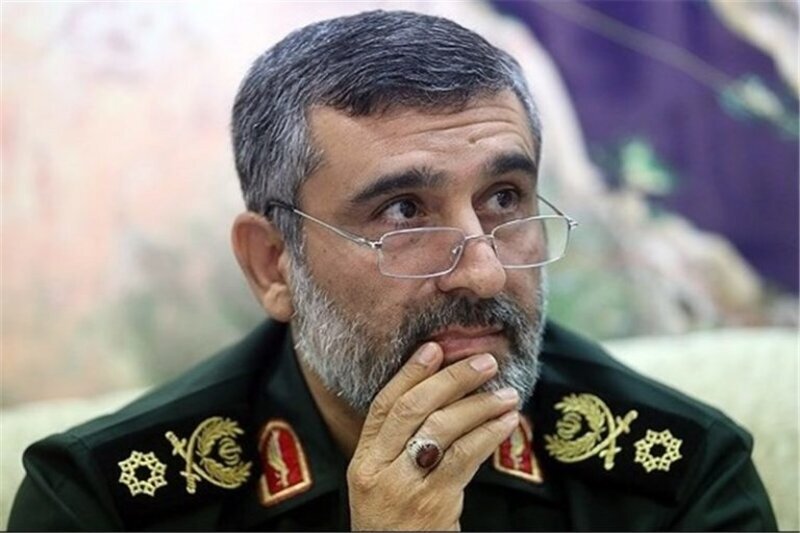Iran to propel brand-new satellite into space by year's end

TEHRAN- Iran will launch a new satellite into orbit by the end of the current Iranian year, which ends on March 20,2023.
The statement was made on Sunday on the sidelines of the 12th Malek Ashtar Festival in Tehran by Brigadier General Amir Ali Hajizadeh, chief of the IRGC Aerospace Division.
Hajizadeh said the Qaem satellite carrier will be used to launch the new home-grown satellite into space.
He added this will be a continuation of the country’s achievements in the field of aerospace technology.
The IRGC Aerospace Division commander also said the adversary now acknowledges Iran's military capabilities.
It will be Iran's third military satellite into space. The nation put its second satellite, Nour-2, into orbit in March 2022, and its first spacecraft, Nour-1, in April 2020.
The orbiter, which was charged with conducting reconnaissance missions, was launched from a launchpad located in Iran's Dasht-e Kavir desert aboard the domestically produced satellite carrier Qassed. It traveled 6.7 km/s for 480 seconds before entering orbit at a 500 km height.
Iran was the first Muslim nation to send satellite into space, according to Major General Hossein Salami, who was speaking on the sidelines of the launch of Nour-2 at the time.
The accomplishment, he said, shows Iran's victory over its adversaries in the technological war who had attempted to obstruct the country's progress.
Nour-1 is now 425 kilometers away from the planet and in an orbit around the earth.
Hajizadeh said that thousands of young experts are making contributions to Iran's aerospace industry in his Sunday speech.
The nation's adversaries now recognize its advancements in aerospace and air defense, he stated.
The senior commander pointed to General Kenneth McKenzie's comments last year in which he acknowledged that Iran's deployment of drones had rendered the U.S. operating without the complete air supremacy for the first time since the Korean War.
“Enemies say Iran’s aerospace, drone, and missile programs are even more important than its nuclear activities,” he pointed out.
“The enemy admits that the policy of ‘maximum pressure’ and its imposition of crippling sanctions have faced with ignominious defeat,” Hajizadeh underlined.
The commander of the IRGC Aerospace force said that Iran is leading the world in the development of surface-to-air missiles based on unmanned aerial vehicles. He also credited the Leader of the Islamic Revolution Ayatollah Seyed Ali Khamenei's prudence for the nation's advancement.
Hajizadeh went on to say that “if today the enemies are worried about this power and are calling for negotiations and are looking for a resolution in Congress to contain Iran, all this is the result of the implementation of these measures.”
He also pointed to normalization of relations between the Israeli regime and certain Arab states, saying such states will transfer willingly or unwillingly a “cancerous tumor” to their own countries.
Leave a Comment